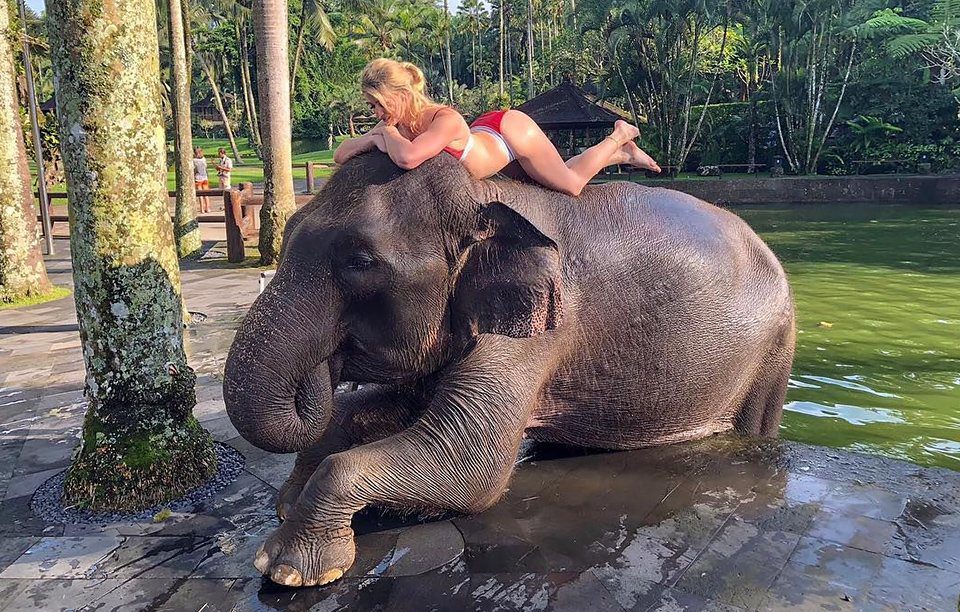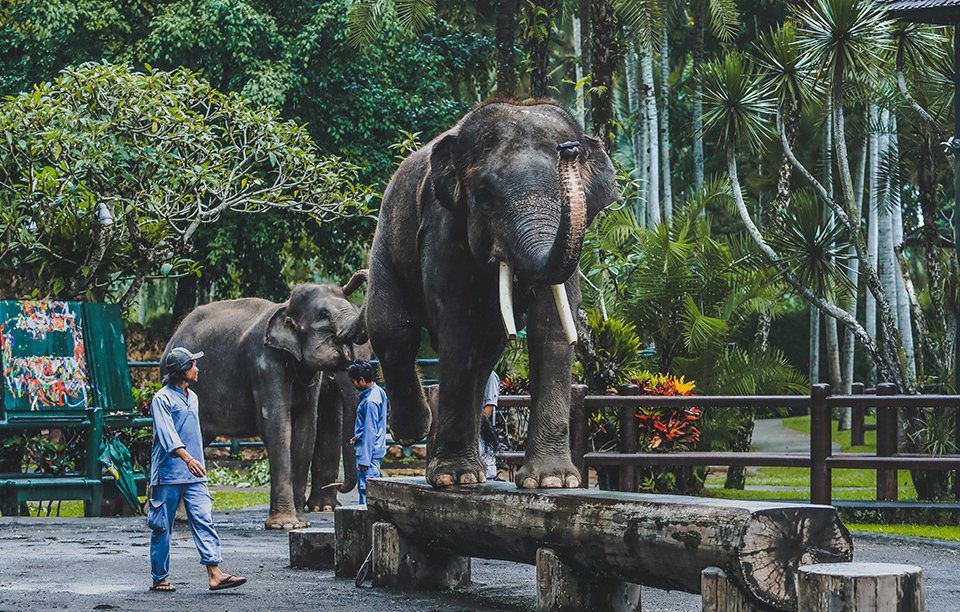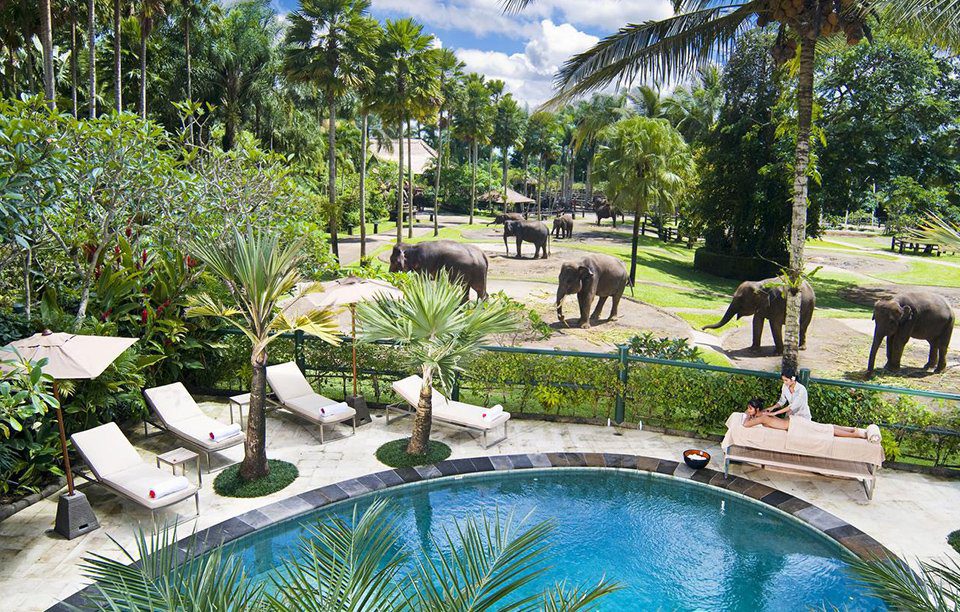Kim Kardashian is facing a social media backlash after posting images of her posing with an elephant in Bali to her 137.3m Instagram followers.
In her recent post, the reality television star shared images from a previous trip to Bali, where she and husband Kanye West visited elephants at the Mason Elephant Park and Lodge.
The 8-acre park and US$450 per night five-star resort is located just outside Ubud and is home to 30 Sumatran elephants who have apparently “learned to paint, play basketball and soccer, swim, and interact with humans.” in a giant elephant theme park of sorts.
Kardashian wrote in the caption that she is “missing Bali,” as well as “the amazing elephant sanctuary.”
Despite racking up over five million likes and 37 plus thousand comments, people from all over the world were quick to criticise the star on social media for sharing images of wild animals in captivity with many saying the sanctuary is “fake” and “tortures” its animals.
But maybe a different way of looking at is – should we actually be thanking Kardashian for unwittingly rallying the cause with her post?

What’s the challenge?
According to a 2018 report from World Animal Protection, Bali doesn’t have any wild elephant populations; instead, the elephants are transported from elsewhere (such as Sumatra) and go through a “breaking-in” process when they first arrive.
As wild animals, elephants don’t typically interact with humans on their own so in order to train the animals for rides and shows, captive elephants at sanctuaries in Bali first go through a “breaking-in” process, according to World Animal Protection.
The report goes on to say that during the “breaking-in” process, elephants are typically restrained so that they can only move when commanded by a caretaker.

Sanctuary workers are also said to inflict pain on the animals using bullhooks to show their dominance and in doing so break the elephants’ spirits, according to World Animal Protection.
Even more concerning is that last year the resort won the ‘World Luxury Hotel Awards 2018′ for ‘Best Luxury Lodge in Asia and Best Luxury Eco Safari Lodge in the World.’
Kardashian responded to the criticism by saying that if elephants had not been transported to the sanctuary from Sumatra, they “would have otherwise gone extinct.”

What’s the solution?
The amusing irony of the whole saga is that in creating the debate, Kardashian has unwittingly educated thousands of her followers to a different viewpoint on the sanctuary and elephant tourism in general.
Former Miss Canada @kristinsbing wrote; “Oh Kimmy, for someone who is trying to become a lawyer, you need to work on being more attentive and research oriented. This is not a sanctuary, and these elephants have been abused and tied up so that they can cater to tourists’ needs (riding them etc). There are many certified sanctuaries in Asia and Africa that allow you a firsthand experience into the life & care and preservation of these wonderful animals WITHOUT degrading or harming them. Sanctuaries allow you to interact from an educational perspective while witnessing rehabilitated or rescued, or endangered elephants. Absolutely not for entertainment purposes.”
What will the positive impact be?
Undoubtedly, whenever anything like this happens, there is always a percentage of the audience that turns a widespread backlash into a positive.
Hopefully, this should bring increased awareness and a change to many traveller’s behaviours after being ‘influenced’ by Kardashian’s post.
137.3 million fans is a seriously huge audience to inspire in so many ways Kim Kardashian probably never thought possible.
Imagine the positive impact and change Kardashian could do for the world if she did think differently?
Let’s hope she starts joining the dots. In the meantime, thanks Kim.
Find out more about elephants in captivity;
www.blog.nationalgeographic.org
www.onegreenplanet.org
www.peta.org/issues/animals-in-entertainment/zoos/get-elephants-zoos/
Source: Insider
How can you travel to change the world?
Congratulations! By reading this post and taking some of these insights on board, you’ve already made a difference.
Now you can easily create your impact by sharing your new-found knowledge with other friends who you think would also be interested.
Ultimately, responsible travel comes down to common sense – stay curious, keep yourself up-to-date with the challenges at hand and make yourself accountable for your actions on your travels.